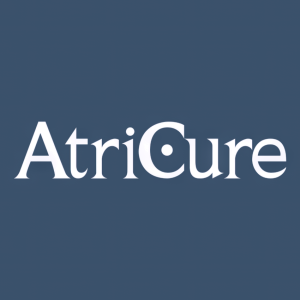AtriCure Announces Labeling Expansion for Cryo Nerve Block Therapy
AtriCure, Inc. (Nasdaq: ATRC) has announced FDA 510(k) clearance for expanded labeling claims of its cryo nerve block therapy, now including treatment for adolescent patients aged 12-21. The cryoICE® and cryoSPHERE™ probes provide effective pain management post-surgery, particularly for procedures like the Nuss procedure for pectus excavatum. Collaborating with the UCSF-Stanford Pediatric Device Consortium, AtriCure aims to innovate pediatric medical devices efficiently. This expansion could enhance recovery experiences for younger patients undergoing invasive chest wall surgeries.
- FDA clearance for adolescent cryo nerve block therapy expands market reach.
- Collaboration with UCSF-Stanford PDC enhances credibility and innovation in pediatric devices.
- CryoNB therapy can significantly improve post-operative pain management for younger patients.
- None.
AtriCure, Inc. (Nasdaq: ATRC), a leading innovator in treatments for atrial fibrillation (Afib) and left atrial appendage (LAA) management, today announced that it has received U.S. Food and Drug Administration (FDA) 510(k) clearance of additional labeling claims for cryo nerve block (cryoNB) therapy to include the treatment of adolescent patients (12-21 years of age).
The cryoICE® and cryoSPHERE™ cryoablation probes are designed to temporarily block pain by ablating intercostal nerves under direct visualization in adolescent patients of at least 12 years of age. AtriCure’s cryoICE technology uses a unique freezing method to block nerves from transmitting pain signals for several months. Because of its long-lasting nature, physicians are adopting cryoNB therapy as part of their multi-modal pain management strategy.
Adolescent patients undergoing invasive surgery of the chest wall can experience severe pain and have limited options for pain management after surgery. One of these procedures is to address structural deformities of the chest wall, a condition known as pectus excavatum. The preferred corrective procedure is a minimally invasive surgery known as the Nuss procedure and cryoNB therapy has shown to be safe and effective for post-operative pain management for adolescent patients.
AtriCure collaborated with the UCSF-Stanford Pediatric Device Consortium (PDC) on a real-world evidence study and a prospective clinical trial in support of expanded adolescent labeling. The UCSF-Stanford PDC is funded by the FDA's Office of Orphan Products Development to help pediatric device innovators accelerate high-value, high-impact solutions towards commercialization and clinical use. “The PDC is proud to be pioneering the use of real-world evidence in helping get critically needed medical devices marketed for pediatric use more efficiently and cost-effectively,” said Dr. Benjamin Padilla, Pediatric Surgeon at Phoenix Children’s Hospital. “The collaboration speaks to the heart of what the PDC is all about: bringing together government, academia and industry to find creative ways to overcome forces that all too often leave pediatric patients out of the gains of innovation.”
“Cryo nerve block therapy has proven to be an effective way to temporarily block pain,” said Michael Carrel, President and Chief Executive Officer. “Pain is a significant factor in quality of life, and we are pleased that the adolescent label expansion gives us the opportunity to positively impact the experience of younger patients recovering from surgery of the chest wall.”
About AtriCure, Inc.
AtriCure, Inc. provides innovative technologies for the treatment of Afib and related conditions. Afib affects more than 33 million people worldwide. Electrophysiologists and cardiothoracic surgeons around the globe use AtriCure technologies for the treatment of Afib and reduction of Afib related complications. AtriCure’s Isolator® Synergy™ Ablation System is the first and only medical device to receive FDA approval for the treatment of persistent Afib. AtriCure’s AtriClip® Left Atrial Appendage Exclusion System products are the most widely sold LAA management devices worldwide. For more information, visit AtriCure.com or follow us on Twitter @AtriCure.
View source version on businesswire.com: https://www.businesswire.com/news/home/20210104005042/en/
FAQ
What recent FDA approval did AtriCure receive?
How does the cryo nerve block therapy work?
What is the significance of the UCSF-Stanford Pediatric Device Consortium for AtriCure?







